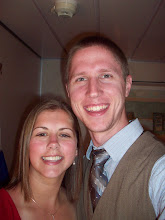In today’s society, it is common to find churches that look like the surrounding culture. Rather than offering an alternative culture to the surrounding world, it seems the church is being overcome by the world. Instead of practicing good, wholesome theology, it’s offering a social club in which to simply play games. Fellowship has become playing games with Christians, and evangelism has become playing games with non-Christians. We do live in the entertainment age, though; what better way to draw in the world than by entertaining them, right? I recently heard a fellow Christian say, “We need to have a hook to draw people in, and then we can teach them the right thing.” This is evangelism in the modern church!
When we look at the early church, I find it intriguing that we see no evidence of mass conversion efforts, and there was very little preaching to the masses. Essentially, there was no institutionalized form of evangelism. Worship and the Christian life were certainly not attractive. If this is the case, what were the early Christian evangelism efforts? What caused our movement to grow so rapidly?
This growth ultimately is due to one factor which we will divide into three more detailed categories.
(1) The church was a community that dearly loved and shared with each other. They took up a collection, similar to the one many churches gather even today but for much different purposes. This was not an offering made to be placed into an annual budget or to throw numerous parties. In this offering, the rich of the faith community gave to the poor of the faith community. The collection was intended for the church to provide for each other and others as God had provided for them, to help those who were suffering and in need.
(2) The church was a community that dearly loved others. Jesus taught in Matthew 5 to love your enemy and pray for those who persecute you (which ought to still be greatly significant today as Christianity is still the only religion to do this). Perhaps this is somewhat difficult to understand in the American culture where persecution is less visible than in the first century (or even in places like India today) and blindly following the country into war against the enemy is merely “defense” and considered patriotic. There are numerous stories of Christians in the early church on their way to a torturous execution giving each other a holy kiss and turning to faithfully face their death. They would not take up the sword against their persecutors or enemies, but they instead prayed for peace for those who were killing them, laying down their sword and picking up their cross.
(3) Finally, the church was a community who built loving relationships with their neighbors, those they came in contact with daily. They often prayed for their neighbors, and, when they could, they would help them financially, yet another reason for the collection. Occasionally the spoke of their faith. It was not so much what they said but what they did, how they lived.
It was not large parties, loud music, the smell of gourmet coffee, attractive worship, or an attractive lifestyle that drew in the crowds but simply love. What is done together in our worship assembly does not even matter if we do not love each other. In fact, in Jeremiah we read of God speaking to a people who are engaged in some of the most exciting worship to date but living in hatred and sin. He asks, “Will you continue to come into my house and say, ‘I am delivered,’ only to go on doing such abominations?” And he calls them to change their ways.
Isn’t it fascinating that this was evangelism in the early church, loving as Christ loved daily? The hook we have been searching for is this:
Dear friends, let us love one another, for love comes from God. Everyone who loves has been born of God and knows God. Whoever does not love does not know God, because God is love. This is how God showed his love among us: He sent his one and only Son into the world that we might live through him. This is love: not that we loved God, but that he loved us and sent his Son as an atoning sacrifice for our sins. Dear friends, since God so loved us, we also ought to love one another. No one has ever seen God; but if we love one another, God lives in us and his love is made complete in us (1 John 4:7-12).
Grace to you,
Matt
Tuesday, December 8, 2009
Subscribe to:
Posts (Atom)
